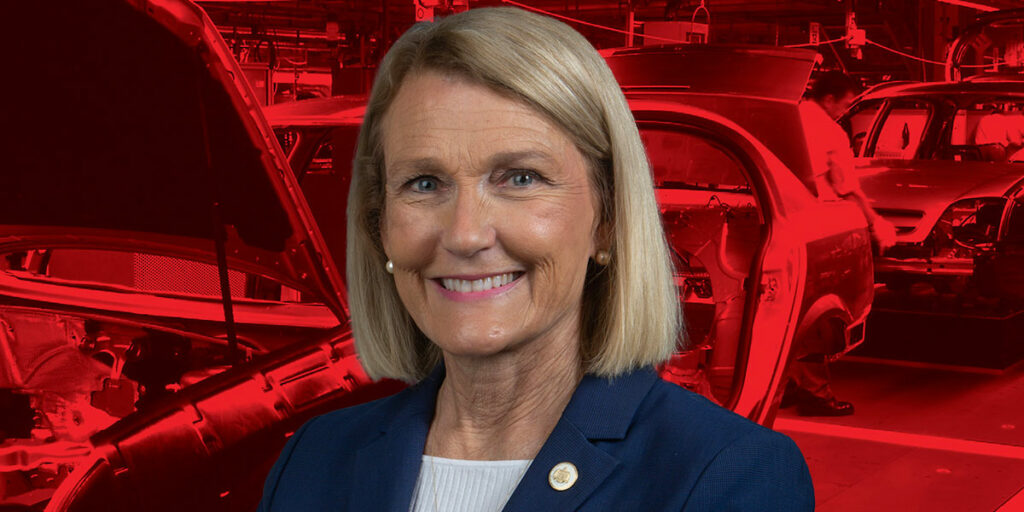United States Department of Agriculture Deputy Undersecretary Scott Hutchins recently traveled to Auburn University where he delivered a speech on climate change to faculty and students.
“There are a lot of reasons for climate change, and there are a lot of things we need to do to prepare for it,” said Hutchins, an Auburn alumnus and the Fall 2019 Auburn University College of Agriculture E.T. York lecturer.
“I think we can do some mitigation, but most importantly, on behalf of our species, we need to adapt to it,” he said. “We need to make sure that our agricultural systems—our capabilities and our productivity—are not unduly affected by it. There are a number of ways we can focus on that, including plant breeding, land conservation and irrigation.”
Hutchins insisted that farmers are not to blame for climate change and that those claims should not be tolerated.
“Some groups are quick to do that, but farmers are adapting to it in terms of how their operations work, and there is a tremendous opportunity to make more progress,” he said.
“We’re beginning to understand the particular impacts of climate variability, and I’m absolutely convinced that the industry’s ability to breed with advanced techniques as well as traditional techniques will allow us to stay ahead of that curve and allow us to adapt in different areas.”
Hutchins also discussed sustainable agricultural intensification.
“There are no doubts by anyone that we have big challenges ahead in terms of feeding the world,” Hutchins said. “I personally don’t worry about these big goals—we definitely have the capacity and capability to feed the world. What I do worry about is if we will do it in a way that will diminish our expanding capacity. That’s the biggest challenge—can we feed the world in a way that’s truly sustainable? We need to be able to talk about these best practices and other things, but we have to do it in a context where farm businesses can understand how to make it into a sustainable approach.”
“Every farmer and every farming operation is going to have a different formula on how they protect their soil or grow their soil health,” he continued.
“Some will be able to do it by intercropping and others in different ways,” Hutchins added. “The unique thing about this industry is that every cow is an experimental unit, and every acre is an experimental unit, so growers and ranchers can do their own experimentation in terms of what is working for their farmers. They literally — pardon the pun — don’t have to bet the farm on any particular tactic — they can find the ones that work for them.”
Another theme discussed by Hutchins was food and nutrition translation.
“I find it exciting that we now have the opportunity to change the game,” he said. “We partner with the Food and Nutrition Service every five years to co-sponsor the update of the dietary guidelines. Unfortunately, that’s become somewhat of a political rather than a science process only. Nonetheless, what I see on the horizon is our ability to work with genomics and to understand disease end-points. The ability to have precision nutrition in a healthy way is not that far away.”
According to a press release, Hutchins also said value-added innovation is a fourth theme and one in which the USDA is obligated to help producers and consumers.
“We have a very active office of technology transfer,” Hutchins stated. “On average, it takes about nine years from the time research is published until the time that it is picked up by any kind of patent. That’s a long gestation time for information. Can we improve that and bring it to the ranch or farm?”
Hutchins then discussed global agricultural science policy leadership.
“It gets down to the United States taking a positive, proactive and leadership role in helping shape science policy around the world,” Hutchins said. “The policy and rules and regulations should be based on credible, repeatable and peer-reviewed science. While that seems very straight-forward to those of us in this field, it’s not always the case around the world, and it has a huge impact on innovation.”
There are groups — fundamentally based in Europe—that follow the “precautionary principle,” he said.
“It sounds good, but it’s a political principle and not a scientific principle,” Hutchins said. “It forces scientists to prove a negative, and you can’t prove a negative. That’s why we advocate for risk-based assessment.”
Hutchins also offered advice to students on what recommendations “define successful scientists.”
“You need to have a passion for learning—not just cursory learning but deep learning,” he said.
He added, “Never stop being curious and never stop seeking new knowledge. But if you don’t have the passion, nothing else will matter.”
Kyle Morris also contributes daily to Breitbart News. You can follow him on Twitter @RealKyleMorris.













